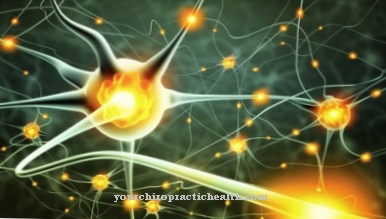If time seems to stand still and a satisfaction spreads inside, then the person is completely with himself and therefore in Flow.
What is flow

In psychology, the well-known happiness researcher Mihály Csíkszentmihályi made the term flow a popular word that describes a very specific state deep inside a person. The English term flow can be translated into German with a stream or flow and, on closer inspection, turns out to be nothing more than a deep mental state, which, however, goes far beyond conventional concentration.
It is a state of affairs that has not only been known since the happiness researcher published it, but has achieved a certain degree of popularity since the 1950s within the framework of so-called game theory, founded by Hans Scheuerl. The flow could be observed very clearly and emphatically in children who were completely caught up in their play. Including without noticing how quickly time goes by and the lasting feeling of simply feeling happy and "whole". Experiences that can still be observed today in children, and increasingly also in adults.
Flow. This term covers numerous mental and emotional states, the common characteristic of which is a deep feeling of happiness. A characteristic of “being in the flow” is that an activity is not viewed as work or as something strenuous. On the contrary, because people in the flow are mentally up to the challenges of a game or activity, so that they do not have to exert themselves to an excessive extent, but they are also not under-challenged. In this way, people can pursue their activities in deep concentration.
Life in and of itself takes place in the state of flow neither in the past nor in the future, but entirely in the here and now. The corresponding negative sense of time, as it occurs, for example, when a task is perceived as difficult or uncomfortable, does not apply to a person who is "flowing". Time and space disappear almost unnoticed and thinking and acting merge into a big whole.
Function & task
The almost world-forgetting state of flow occurs naturally in children who, up to a certain age, have little or no sense of time. Only with increasing age can the naturally existing mental flow state move into the background, as time takes on a constantly expanding framework in a person's life.
However, since there has been a separate area of happiness research in science, it has been shown that more and more adult women and men want to specifically achieve the state of flow and also achieve it. Examples are people who are completely immersed in a creative hobby and absorbed in it. Or (extreme) athletes who can even deliberately put themselves into the flow to climb mountains or run an ultra-marathon.
Even if it is widely assumed that flow is a technique that is easy to learn, it shows the fact that flow is a state on a spiritual level. However, people can learn to put themselves into this time-forgetting state of happy doing.
The benefits are manifold. By acting creatively, without fear, solutions to problems are found more quickly, self-confidence is strengthened and expanded, and the feeling of success and recognition is triggered out of oneself. Another consequence of the flow: independence from help or praise from other people.
You can find your medication here
➔ Medication to lighten the moodIllnesses & ailments
Overall, the flow in a person is something very positive. Even from a health, i.e. physical point of view, a state of flowing shows an increased release of serotonin (happiness hormone) and adrenaline.
However, there are also negative effects if a person loses himself too much and too often in the flow. Existing relationships with your partner or family can suffer, as time is completely faded out again and again. A condition that can even lead to flow addiction, which in many cases cannot be initially detected either by the person affected or by those around them.
People in the flow can also completely hide everything else through the existing concentration on a certain thing, including can lead to a hazard in traffic. In addition, people can get so used to the infinitely beautiful feeling of happiness that they are looking for their "dose of happiness" every day and, like an addict, have to constantly increase the dosage. If the daily dose is missed, those affected often show real withdrawal symptoms: nervousness, listlessness, moodiness up to depression, headache, inner restlessness, heart problems, sleep disorders or even a leaden tiredness paired with the feeling of a deep longing that does not seem to arise lets breastfeed.
If the former satisfied and happy state of flow, and thus the temporally unlimited inner flow, shows such effects, the person concerned usually only has the path of therapy to guide the search and living out of the timeless state of happiness back into healthy and non-stressful paths .












.jpg)



.jpg)










.jpg)
